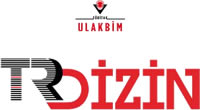Yeni Nesil Matematik Sorularına İlişkin Tutum Ölçeği Geliştirme: Geçerlik ve Güvenirlik Çalışması (Development of Attitude Scale Related to New Generation Math Questions: Validity and Relibility Study)
DOI:
https://doi.org/10.15659/ankad.v5i2.159Anahtar Kelimeler:
Ortaokul öğrencileri- matematik- yeni nesil sorular- tutum- ölçek geliştirmeÖzet
Modern eğitim sistemini uygulayan ülkeler, sistemlerin çıktılarını hemen her zaman görmek istemekte ve bu çıktılar neticesinde de eğitim politikaları oluşturmaktadırlar. Ülkelerin eğitimsel manada yakaladıkları başarı sadece kendi ülkelerini ilgilendirmekle kalmamakta yakalanan başarı diğer ülkeler için de örnek teşkil etmektedir. Ülkelerin başarılı olup olmadıkları ise uluslararası boyutta gerçekleştirilen PISA, TIMSS gibi sınavlarda elde edilen sıralamalarla açıklanmakta, buralardan elde edilen verilere göre de ülkeler eğitim sistemlerini geliştirmek için çaba sarf etmektedirler. Bu bağlamda Milli Eğitim Bakanlığı 2018 yılında çağın gereklilikleri ve uluslararası sınavlarda Türkiye’nin elde ettiği başarı durumunu göz önünde bulundurarak LGS gibi merkezi bir sınavın uygulanmasında yer alacak soruların, öğrencilerin bir takım becerilerini ölçebilecek nitelikte olması gerektiğine yönelik karar almıştır. Bu durum öğrencilerin uluslararası sınavlarda da karşılaştıkları yeni nesil sorular olarak da adlandırılan sorularla tanışmalarına yol açmıştır. Öğrencilerin merkezi sınavlarda karşılaştıkları yeni nesil soru türlerinden birisi de matematik dersine ait yeni nesil sorulardır. Yeni nesil matematik sorularına ilişkin öğrencilerin tutumlarını belirlemede kullanılabilecek geçerli ve güvenilir bir ölçme aracı geliştirmek amacıyla gerçekleştirilen bu çalışmanın verileri 2020-2021 eğitim öğretim yılının güz döneminde Ankara ili merkez ilçelerinde bulunan ortaokullarda öğrenim gören 399 öğrencilerden elde edilmiştir. Elde edilen verilerden hareketle yapılan analizler sonucunda; ölçeğin madde toplam korelasyon katsayılarının kabul edilebilir seviyede olduğu ve tüm maddelerin istatistiksel olarak anlamlılık gösterdiği sonucuna ulaşılmıştır. Yapılan AFA sonucunda ise ölçek maddelerinin üç boyut altında toplandığı belirlenmiştir. Ölçeğin geneline yönelik test edilen güvenirlik katsayısı ile geçerliğine ilişkin veriler değerlendirildiğinde, ölçme aracının ortaokul öğrencilerinin yeni nesil matematik sorularına yönelik tutumları belirlemede kullanılabilecek geçerli ve güvenilir bir ölçme aracı olduğunu söylenebilir.
Referanslar
Altun, M. & Akkaya, R. (2014). Matematik öğretmenlerinin PISA matematik soruları ve ülkemiz öğrencilerinin düşük başarı düzeyleri üzerine yorumları, Hacettepe Üniversitesi Eğitim Fakültesi Dergisi, 29(1), 19-34.
Altun, M. & Bozkurt, I. (2017). Matematik okuryazarlığı problemleri için yeni bir sınıflama
önerisi, Eğitim ve Bilim, 42(190), 171-188.
Artelt, C., Baumert, J., Julius-McElvany, N. & Peschar, J. (2003). Learners for life: Student approaches to learning: Results from PISA 2000. Paris: OECD. https://files.eric.ed.gov/fulltext/ED480899.pdf adresinden edinilmiştir.
Batur, Z., Ulutaş, M. & Beyret, T. N. (2019). 2018 LGS Türkçe sorularının PISA okuma becerileri hedefleri açısından incelenmesi, Milli Eğitim, 48 (Özel Sayı 1), 595-615.
Büyüköztürk, Ş. (2002). Faktör analizi: Temel kavramlar ve ölçek geliştirmede kullanımı,
Kuram ve Uygulamada Eğitim Yönetimi, 32, 470-483.
Büyüköztürk, Ş. (2010). Sosyal bilimler için veri analizi el kitabı, (12.Baskı). Ankara: Pegem. Çepni, S. (2019). PISA ve TIMSS sınavlarında başarıyı yakalamak için Türkiye ne yapmalı? S.
Çepni (Ed.), PISA ve TIMSS mantığını ve sorularını anlama (2.Baskı), içinde (ss. 393- 404), Ankara: Pegem.
Çepni, S. (2020). Eğitimde “Bir Adım Ötesi” tartışmalarının kavramsal çerçevesini anlamak: Dijitalleşme ve insanileşme (etik ve değerler) kavramlarında denge kurma arayışları, Fen, Matematik, Girişimcilik ve Teknoloji Eğitimi Dergisi, 3(2), 65-79.
Çokluk, Ö., Şekercioğlu, G. & Büyüköztürk, Ş. (2010). Sosyal bilimler için çok değişkenli istatistik SPSS ve LISREL uygulamaları. Ankara: Pegem.
Diamond, J. B. (2007). Where the rubber meets the road: Rethinking the connection between high-stakes testing policy and classroom ınstruction, Sociology of Education, 80, 285– 313.
Erden, B. (2020). Türkçe, matematik ve fen bilimleri dersi beceri temelli sorularına ilişkin öğretmen görüşleri, Academia Eğitim Araştırmaları Dergisi, 5(2), 270-292.
Güler, M., Arslan, Z. & Çelik, D. (2019). 2018 Liselere giriş sınavına ilişkin matematik öğretmenlerinin görüşleri, YYÜ Eğitim Fakültesi Dergisi, 16(1):337-363.
Gürbüz, M. Ç. (2019). Uluslararası sınavların ve bazı ülkelerin merkezi sınav sistemlerinin ve soru örneklerinin tanıtımı S. Çepni (Ed.), PISA ve TIMSS mantığını ve sorularını anlama (2.Baskı), içinde (ss. 45-110). Ankara: Pegem.
Gürlen, E., Demirkaya, A. & Doğan, N. (2019). Uzmanların Pisa ve Timms Sınavlarının Eğitim Politika ve Programlarına Etkisine İlişkin Görüşleri. Mehmet Akif Ersoy Üniversitesi Eğitim Fakültesi Dergisi, (52), 287-319. DOI: 10.21764/maeuefd.599615
Hamilton,L.S., Stecher, B.M. & Klein, S. P. (2002). Making sense of test-based accountability in education, Santa Monica, CA: RAND.https://www.rand.org/content/ dam/rand/pubs/monograph reports/2002/MR1554.pdf adresinden edinilmiştir.
Kayış, A. (2010). Güvenilirlik analizi (Reliability analysis)., Ş. Kalaycı (Ed.), SPSS uygulamalı çok değişkenli istatistik teknikleri (5. Baskı), (ss. 401-419). Ankara. Asil.
Kertil, M., Gülbağcı-Dede, H. & Ulusoy, E. G. (2021). Skill-based mathematics questions: What do middle school mathematics teachers think about and how do they implement them?, Turkish Journal of Computer and Mathematics Education, 12(1), 151- 186.
Korkmaz, Ö. & Yeşil, R. (2011). Medya ve televizyon okuryazarlık düzeyleri ölçeği geçerlilik ve güvenirlik çalışması. Uluslararası İnsan Bilimleri Dergisi, 8(2), 110-126.
Martin, M. O. & Kelly, D. L. (Eds), (1996). Third International Mathematics and Science Study Technical Report Volume I: Design and Development, Center for the Study of Testing, Evaluation, and Educational Policy, Boston College. https://timss.bc.edu/timss1995i/TIMSSPDF/TRall.pdf adresinden edinilmiştir.
Milli Eğitim Bakanlığı [MEB], (2018). 2018 Liselere Geçiş Sistemi (LGS): Merkezi Sınavla Yerleşen Öğrencilerin Performansı, Eğitim Analiz ve Değerlendirme Raporları Serisi No:3, ttps://www.meb.gov.tr/meb_iys_dosyalar/2018_12/17094056_2018_lgs_rapor.pdf adresinden edinilmiştir.
Milli Eğitim Bakanlığı [MEB], (2019). PISA 2018 Türkiye Ön Raporu, http://www.meb.gov.tr/meb_iys_dosyalar/2019_12/03105347_PISA_2018_Turkiye_On
_Raporu.pdf adresinden edinilmiştir.
Milli Eğitim Bakanlığı [MEB], (2020). TIMSS 2019 Türkiye Ön Raporu, Eğitim Analiz ve Değerlendirme Raporları Serisi No:15, https://odsgm.meb.gov.tr/meb_iys_dosyalar/ 2020_12/10175514_TIMSS_2019_Turkiye_On_Raporu_.pdf adresinden edinilmiştir.
OECD, (2016). PISA 2015 Results (Volume I): Excellence and Equity in Education, PISA, OECD Publishing, Paris. https://www.oecd-ilibrary.org/education/pisa-2015-results- volume-i_9789264266490-en adresinden edinilmiştir.
OECD, (2019). PISA 2018 Results (Volume I): What Students Know and Can Do, PISA, OECD Publishing, Paris, https://www.oecd-ilibrary.org/education/pisa-2018-results-volume- i_5f07c754-en adresinden edinilmiştir.
Ormancı, Ü. (2019). Türkiye’deki ulusal sınavların tanıtımı, S. Çepni (Ed.), PISA ve TIMSS mantığını ve sorularını anlama (2.Baskı), içinde (ss. 33-44), Ankara: Pegem.
Özgüven, İ. E. (2011). Psikolojik testler. Ankara: PDREM.
Yayınlanmış
Nasıl Atıf Yapılır
Sayı
Bölüm
Lisans
Telif Hakkı (c) 2024 Anadolu Kültürel Araştırmalar Dergisi (ANKAD)

Bu çalışma Creative Commons Attribution-NonCommercial 4.0 International License ile lisanslanmıştır.













